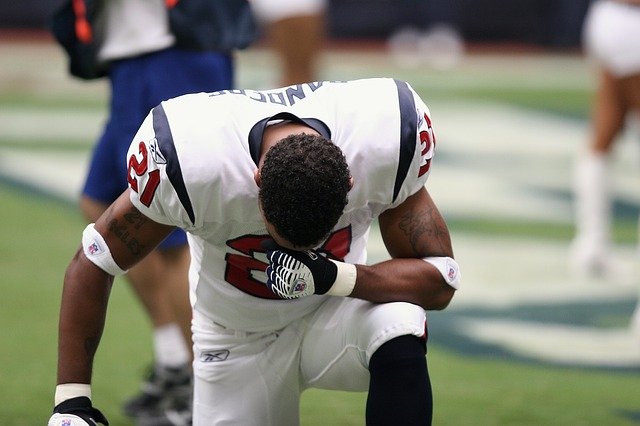Though sports injury pain can vary in intensity, it is possible to recover rapidly. Making an appointment with a qualified orthopedic specialist is the simplest way to do this. He/ She will give a definitive diagnosis and start your treatment. In addition, they will help you learn proper stretches and exercises to help you recover faster.
If required, your orthopedist may also discuss potential surgeries with you. These factors are as important as maintaining a proper diet. When recovering from a sports injury, the proper diet can minimize recovery time, streamline the procedure, and help you to reach your goal sooner. In this blog, India’s eminent sports nutritionist Avni Kaul discusses the foods to eat if you are recovering from sports injuries.
Plenty of Protein
Protein is a nutrient that reinforces your body’s muscle tissue. When one suffers a sports injury and cannot maneuver a specific body part, it inevitably loses mass which can be minimised by eating sufficient quantity of protein.
Therefore, you must include chicken in your diet along with fish, both of which are good sources of healthy protein. Also, non-meats such as beans, tofu, and nuts can be a regular part of the diet as well.
Protein consumption is especially important when you start retraining your body, as it can improve muscle formation. A nutritionist familiar with your recovery plan can give specific advice about appropriate protein consumption and how to care for your injury at home.
Omega-3 Fatty Acids
Sports injuries such as a sprained ankle can lead to a lot of inflammation in the afflicted area. Foods with omega-3 fatty acids can help control this inflammation.
If you want to introduce omega-3 fatty acids into your diet, then include foods like walnuts and chia seeds. Fish, already rich in protein, contains a good amount of omega-3 fatty acids. However, ingesting excessive omega-3 fatty acids could potentially have the opposite impact. Therefore, instead of consuming vitamin or powder supplements, be certain to eat foods that have these nutrients.
Omega-6 fats, which are mostly available in oils, also reduces inflammation. Canola oil, sunflower oil, corn oil, and other such products are good for cooking and can give this benefit. Coconut oil is another common method for those dealing with arthritis to reduce inflammation. Consult a nutritionist for additional information about omega-3 fatty acids in your diet.
Vitamin C Based Fruits and Vegetables
One of the major goal during sports injury recovery is minimizing inflammation. This is crucial in improving the range of movement and restoring your body’s original state. Luckily, Vitamin-C can assist you to accomplish that.
Vitamin-C contains anti-inflammatory properties, which can lower (or prevent) inflammation. The collagen that vitamin-C forms also improve the body’s ability to maintain bone, muscle, and tendons. The obvious location to begin is with citrus fruits like oranges and grapefruits. Bell peppers, spinach, broccoli, and tomato also have plenty of vitamin C.
Vitamin D and Calcium
Calcium plays an important role in supporting to heal broken bones. However, this is also crucial for helping the brain to signal nerves and contract muscles adequately.
Some calcium-rich foods include broccoli, almonds, and dairy products. One can also obtain Vitamin D from egg yolk and fortified cereals.
Vitamin-D also boosts the body’s ability to absorb and process calcium for recovery besides helping independently. Vitamin-D is one of the finest treatment for natural pain management. Also, these nutrients can help prevent sports injuries in children.
Zinc
Like protein, zinc is also important in helping heal the wounded tissue. Failing to ingest sufficient zinc can prolong the healing process.
Common zinc-rich foods include meat, fish, seeds such as flaxseeds, pumpkin seeds, and whole grains. Nuts are also a top choice.
However, be certain to stay away from zinc supplements. While they are one of the smartest ways to consume large quantities of zinc, they can also lead to a copper deficiency.
Fiber-Based Foods
In an attempt to recover from injuries such as tears and strains, it is generally recommended to keep the injured body part immobile. This prevents added inflammation. However, throughout the recovery process, it could lead to weight gain if you are not careful. Obviously, you cannot hop on a cardio exercise machine and burn fat with a workout. This is why consuming fiber-based foods is important.
Fiber-based foods will help you feel full much faster and prevent you from overeating. This will help you to control your diet naturally. Also, fiber-based foods contain plenty of other nutrients.
So, be certain to include a serving of broccoli or spinach in your dinner. Also including whole grains such as millet, barley, and brown rice is a good choice
While it’s essential to control your body weight and food consumption, it is equally essential not to under-eat. Ask a nutritionist for more precise instructions regarding diet and proper portions.
**This article has been written by team Nutri Activania**
Special Online Diet Program, Designed for Home Quarantine
Do anxiety, boredom, and stress from home isolation are causing you sleeplessness, fluctuations in blood pressure and sugar levels, frequent indigestions? Are you worried about your immunity level and weight gain due to the homestay and due to the absence of morning walks and Gym?
Join Nutritionist Avni Kaul’s special online diet program, designed to keep you fit, reach weight loss goals and boost your immunity while you stay during the home isolation. To know more and book your online appointment, call 9953228642
Talk to the Nutritionist Avni Kaul to know more about Special online diet programs for weight loss and obesity management, Therapeutic Diets for people suffering from Thyroid, Diabetes, Hypertension, PCOD, Irritable Bowel Syndrome.


